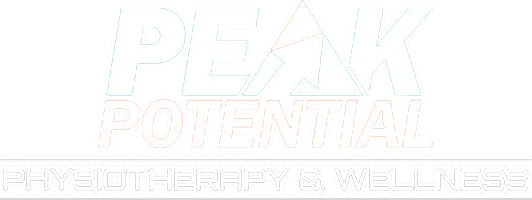Every person’s body is different and there is no “one size fits all” meal plan that will give everyone the results they desire. This is due to genetics (the body’s blueprint), epigenetics (how well our lifestyle choices followed this blueprint), your microbiome (the bacteria living in your gut), and so much more.
That isn’t even taking into account what your goal actually is – weight loss, muscle gain, injury recovery, athletic performance, overcoming a health obstacle, or just healthy aging.
I can tell you across the board, when a client comes to me with any of the above goals, their body generally needs more protein than what they are currently getting. We discussed this more in the post How Can Protein Improve Your Health & Recovery?
When it comes to protein, our consumption is most effected by epigenetics and our microbiome. We may not be getting enough because of the amount we consume, the type we consume, or our bodies ability to break it down into usable forms.
When we miss the mark on any of these the result in difficulty healing from an injury, recovering from a workout, balancing hormones, maintaining a healthy body weight and energy. But, it’s not just about downing huge protein shakes and “meeting our macros” for the day. We now no thought it’s not what we eat but what our body absorbs that counts.
Here are 10 tips to ensure that you consume AND your body actually absorbs enough protein to keep you strong and healthy.
- Space out Your Intake – The body can only process so much protein at a time. Instead of trying to get all your protein needs met at one meal or in a massive shake, space out protein consumption to 3-4 servings throughout the day.
- Limit Liquids at Meal Time – Digestive enzymes in the stomach help the body break down protein into amino acids that are absorbed into the body. Too much liquid with our meals dilutes these enzymes and they aren’t able to do their job. Don’t forget to drink plenty throughout other parts of the day.
- Take Digestive Enzymes – After about the age of 35 our body slows down the production of enzymes – and continues to decline with age. Supplemental digestive enzymes are taken in a capsule form before meals in order to help break down of proteins when our body doesn’t do it well on it’s own.
- Start Your Day with Protein – It’s important that your first meal of the day contains a full serving of protein (at leas 20 grams). This will fire up your metabolism and help you feel full and satisfied.
- Check Your Shakes – Not all protein shakes are equal. Grass fed whey protein is most easy to absorb. If you choose vegan, the protein must come from a variety of sources to get all the essential amino acids. Read more on protein shakes . . . Don’t Make These Shake and Smoothie Mistakes
- Eat More Fish and Eggs – Making eggs and fish part of your meal plan more often allow you to increase protein while also getting in hormone healthy fats and brain boosting nutrients.
- Focus on Animal Proteins – Proteins from animals are most readily absorbed by the body. When you eat 20 grams of protein from eggs or chicken, your body can use more of that protein than if you ate 20 grams from beans or grains. You can meet protein goals as a vegetarian, but it is more challenging.
- Add in Plant Based Proteins – Plant proteins like beans, quinoa, nuts, and seeds are great to boost your daily protein intake. Add pumpkin seeds to your salad, spread almond butter on your apple, enjoy lentils in your soup, or have a side of peas.
- Snack on Protein – Typical snacks like chips and pretzels aren’t going to help you meet your daily protein goals. Choose snacks like cheese, hummus, clean jerky, Greek yogurt, or pumpkin seeds and your protein grams will start adding up quickly for the day.
- Don’t Fall for Marketing Gimmicks – Marketers know that “protein” is a popular buzzword and will add to almost anything to sell a product. Check labels on protein bars, cereals, and the like to be sure that you aren’t getting more added sugar and chemicals than you are actually high quality protein.
Now you are ready to tackle the day by getting more protein to the parts of your body that need it most. However, you may be wondering about carbohydrates and fats.
When it comes to these other macronutrients, how much we need, how effectively our body uses it, how readily our body stores it, and the best food choices for each is most highly dependent on genetics.
For example, some of us easily use carbohydrates for energy and feel amazing when grains and fruit fill our plate. Others of us more readily store carbohydrates as body fat and have an exaggerated insulin response. This leaves us feeling sluggish and drained when we consume a high carbohydrate meal.
As a nutrition specialist and health coach, I utilize nutritional genetic testing to identify how each individual’s body responds to carbohydrates and fats, then we add protein in according to current lifestyle and health goals. This testing takes the guess work out of nutrition and allows us to completely personalize a plan that allows you to optimize your health and thrive for a lifetime.
It’s like we have been trying to build this house (our body) without ever seeing the blueprint. Genetic testing is the blueprint that allows us to take the next best steps. If you are interested to see if this may benefit you on your health and wellness journey, click the link below to request a call from our Nutrition Specialist.


